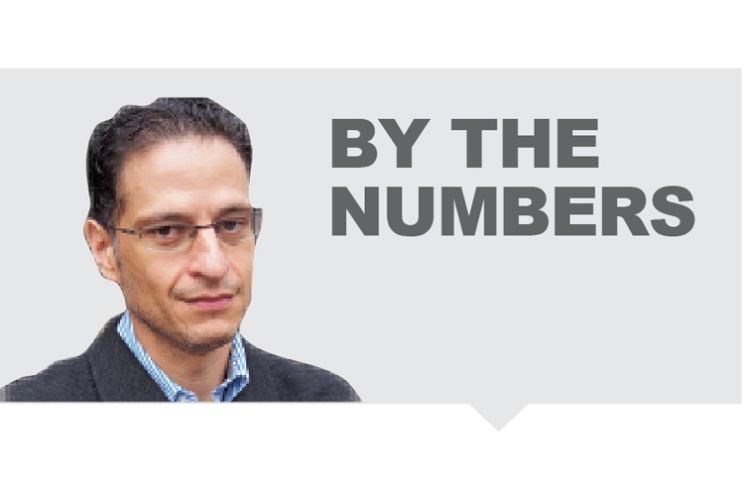In early June, a tweet by Justin Trudeau garnered more than 3,000 "likes" and almost 700 replies.
In the succinct message, which linked to an online news story, the Canadian prime minister celebrated the fact that the country had "the lowest unemployment rate on record."
Social media provides an irretrievably biased assessment of how many humans and some "bots" can react to the effect of policies depending on which party they support or their contempt towards a political leader.
Replies to Trudeau's "lowest unemployment" tweet offered the usual miscellany of congratulations and provocative memes.
In a survey conducted by Research Co. last month, 19 per cent of Canadian voters said "the economy and jobs" is the most important issue facing Canada - on par with "health care" (19 per cent) and higher than the environment (16 per cent), housing, homelessness and poverty (13 per cent) and immigration (11 per cent).
Economic concerns are more prevalent in Alberta, a region where the governing Liberal Party is not expecting major gains in this October's federal election.
Still, the ability to point to data that shows a low unemployment rate could be helpful in establishing Trudeau as a good economic manager on the campaign trail.
When Research Co. asked a representative sample of Canadians just how much credit Trudeau deserves for the country's low unemployment rate, three in five respondents (60 per cent) said that the prime minister deserves "all of the credit" (12 per cent) or "some of the credit" (48 per cent).
This majority of Canadians who appear to endorse the prime minister's economic management climbs to 65 per cent in Quebec and 63 per cent in British Columbia.
These are two crucial provinces that the incumbent Liberal Party will need to connect with in the leadup to the election.
The survey also provides an opportunity to evaluate Canada's political divide.
While 81 per cent of Liberal voters in 2015 think Trudeau deserves "all" or "some" of the credit for the low unemployment rate, the proportion falls to 54 per cent among those who supported the New Democratic Party (NDP) in 2015 and just 37 per cent among those who voted for the Conservatives.
The U.S. president has also used social media in an effort to delineate his economic record.
In early May, Donald Trump tweeted a link to a story from CNBC that quoted the "lowest unemployment rate since 1969."
As was the case with Trudeau, the replies had a bit of everything, including praise for the policies of Trump's predecessor and gloating statements from red hat wearers.
Americans were also asked by Research Co. to discuss their views on job creation and their commander-in-chief.
Some numbers were not too dissimilar to what was observed in Canada, with only 12 per cent of Americans thinking Trump deserves "all of the credit" for the country's low unemployment rate.
A significant proportion of U.S. citizens (45 per cent) say that the current president deserves "some of the credit" for this result.
This means that a majority of Americans (57 per cent) tend to express positive views of Trump's management of "jobs and the economy," including 64 per cent of Republicans, 53 per cent of Independents and 50 per cent of Democrats.
Conversely, 43 per cent of Americans believe Trump does not deserve "much of the credit" (17 per cent) or deserves "no credit at all" (26 per cent) for the current state of affairs when it comes to jobs.
The proportion of Americans who suggest Trump should definitely not be gloating about the unemployment rate reaches 35 per cent among those aged 18 to 34, 31 per cent in the West and 38 per cent among Democrats.
In Canada, "no credit al all" for Trudeau is highest in Alberta (29 per cent) and among Conservative voters in the last federal election (31 per cent).
So, for all the talk about the polarization of U.S. politics, the unemployment rate is an issue where some Canadian voters are less willing to commend the incumbent government.
In spite of all of the reasons that Democrats have to be upset with Donald Trump, half of them appear to begrudgingly acknowledge that jobs have not been lost under his watch.
In Canada, fewer than two in five Conservative voters offer the same assessment of Justin Trudeau's efforts, even if both countries hover around record lows.



